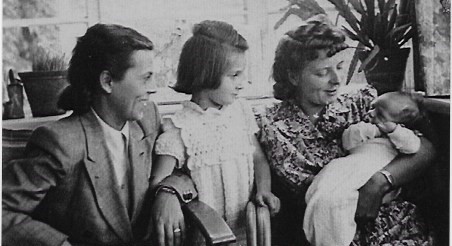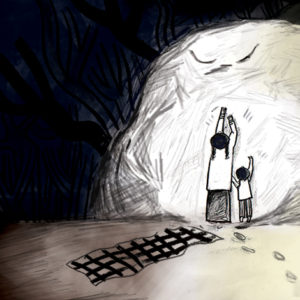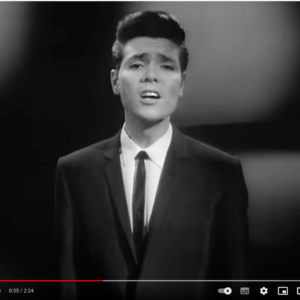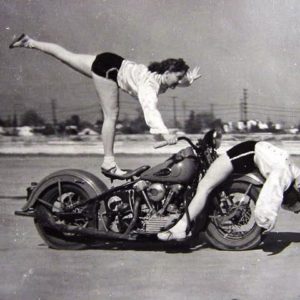So, there we were, far from home in a northern part of Germany, which would soon, along with other small countries in the region, be re-arranged. Already the leaders of the Allied Winners had been in Yalta for a month to haggle and divvy up among them the land, the spoils of war. We had gotten to this unknown-to-us place in two trips, the first to my aunt’s family home, the second without any choice on our part but for a Western direction, driven like tumbleweeds by the winds of available transport.
After the traditional period of pillage and rape while we had hunkered down, my resourceful aunt located a man with a truck and, with some jewelry from my mother’s waning cache, he was bribed to take us back to her parents’ house and bakery, a couple of days’ travel to what is today the Czech Republic. A bakery would be good, there would always be bread. When we arrived we found that the bakery had a new Czech owner, and the old baker was now his foreman. We crowded in on the old folks’ quarters, but not for long. With only German documents we were interned in a concentration camp for Germans. My mother somehow dodged the bullet, but my aunt got picked for forced labor, and true to her enterprising spirit, she organized her troop, and they left the camp marching with their shovels and picks shouldered and singing a song. Hours later, when they returned, they were no longer singing. I cannot remember how long we stayed in this camp, but I do remember a hole under the barbed wire, large enough for me to squeeze through, and I was sent, their little homing pigeon, into town with messages to family and friends written on scraps of paper hidden in my shoes. I would return in the afternoon, with fresh bread, just walking through the guarded gate without any questions.
As we had learned from rumors, as new inmates arrived at the camp, old residents were packed into groups and deported to the West to American-occupied parts of Germany. Eventually it came our turn.
A few hundreds of us were marched to the train station and loaded onto freight cars, such as were used for the transport of cattle, thirty persons to a wagon, for the two or three day trip. Some slop was brought around once a day and a bucket served for sanitary needs.
Free again in the American zone, our first triage camp was the great hall of a minor castle, where we lined up, men, women and children, butt naked, and were given a cursory medical inspection and a liberal dusting with DDT. Each family unit had a blanket spread on the floor, assigned as their space. There was food and water. After only one or two days we were divided into groups of about 20 people and loaded onto flat-bed trailers pulled by tractors and dispersed into the Bavarian countryside. After a few hours we arrived in a tiny village of only 13 houses, dairy farms, and the tractor went from house to house and each local family had to give shelter in their home to a family unit of us refugees. Families that looked fitter than us were soon settled, but we remained on the trailer, not chosen. It had been a long day and it started to rain a bit. The driver wanted to go home. The farm family were adamant. They did not want to take us in. In the end they relented, grumpily, and led us to an upstairs chamber that had been used as storage.
Next morning, a Sunday, they woke us with a pitcher of milk and a slab of bread to invite us to go to church. We declined, and as soon as they on their bicycles were out of sight, my aunt went to look for the chicken coop, and we ate eggs for breakfast. Aha! My first lesson in stealing food.
We soon saw that there was a lot of food produced, but none of it was ours. To get some of that food we had to earn it. So, my mother learned to milk a cow, by hand, and now milked a couple in the morning and evening for a daily pitcher of milk, and she soon started to sew for people and was paid in produce. But we would have starved had it not been for the woods that surrounded the village, where we foraged for mushrooms, fragrant wild strawberries and raspberries, beach-nuts and fallen branches and pine-cones for our little iron stove. I got pretty good at all that and I liked to roam in the woods, soon alone, and I was proud to come home with more than we could eat, so that the excess could be preserved for winter-time.
The three mile walk to my third and later fourth grade class took an hour each way, and sometimes I would whine and promise my mother that if she allowed me to miss school, I could go into the woods and bring home a lot of food. She was so easy to convince. She thought that I was smart and could figure out stuff like long division without a teacher, and she was right. I did. Sometimes we still went into the woods together and on the way home, she would always suggest that, halfway, we take a little rest. For our resting spot she would always choose the edge of a potato field, and guess what, that evening along with our mushroom meal (by the way, it was my mother who invented the mushroom burger) there would also be a potato on our plate.




